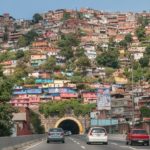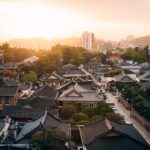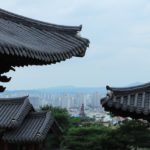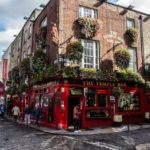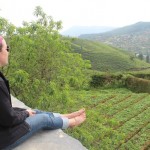How the Venezuelan People Taught Me to Steer Clear of Stereotypes
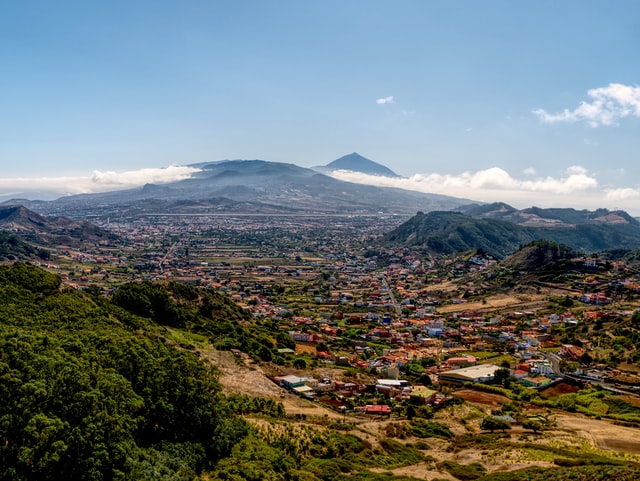
I think Joan Didion had it right when she told us, “We tell ourselves stories in order to live.” I have been in Caracas, Venezuela, for two months, living, learning and telling stories to the best of my ability on my blog. For me, the act of sharing stories about my travels is almost as important as the travels themselves. It allows me to relive my experiences and reflect on what I’ve learned.
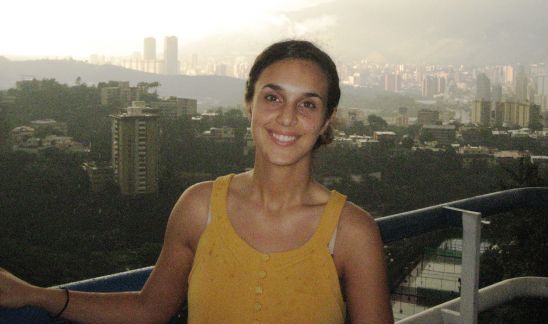
With that said, I have three stories I’d like to share with you all:
How the Venezuelan People Taught Me to Steer Clear of Stereotypes
Story 1: “What are you guys doing here?”
Last Thursday, I was driving with two gringa friends and a Venezuelan friend to a party at the “marine house,” where the U.S. marines live while on tour here in Caracas. We had been driving around lost for a while when we spotted a man walking just ahead of us. The man’s t-shirt was in English, so we figured he might be able to help us.
“Hey! We’re looking for the marine house…do you happen to know where it is?” my friend asked.
“Oh hey! You guys are from the U.S.!?!” he called back.
“Yeah!!” my friend yelled.
“What are you guys doing here?” he asked. Except that it came out like, “What are you guys doing here?” with a distinctly negative emphasis on the word “doing.”
“We’re here on scholarships to study and do research,” my friend replied happily, evidently missing his tone.
The worst part was watching my Venezuelan friend’s face fall as he listened to all the bad things this foreigner had to say about his city.
“What are you doing here?” I asked pointedly. He told us he was here teaching English. Then he proceeded to tell us that the marine party was a bad idea, that Caracas is a terrible, dangerous city and that we’re all crazy for being here. I happened to agree with the guy about the marine party; it wasn’t my first choice for an evening activity. But the other stuff?
Caracas was my first choice when I was applying for my Fulbright, for a lot of reasons. It’s not exactly an oasis of peace and tranquility, but it certainly isn’t the hellhole the guy was making it out to be. The worst part was watching my Venezuelan friend’s face fall as he listened to all the bad things this foreigner had to say about his city.
“What’s this guy doing teaching English here if he hates it so much?” I wondered to myself as we drove off, still with no idea of how to get to the party.
Story 2: “But you guys are different. You seem nice.”
Last weekend, I went to a beach town a few hours’ bus ride from Caracas. On the way back, we stopped to change buses and use the bathroom. In much of Venezuela, there are bathroom attendants who give you toilet paper and charge you a few bolivares to use the facilities. The woman attending the bathroom in the bus station was polite enough when we approached, and we were polite in return. We had used the bathroom and were just leaving when the woman called out to me in Spanish: “Where are you guys from?”
“The United States,” I responded.
“Really?” She seemed genuinely surprised. “I’ve met a lot of people from there, and they are never nice. But you guys are different. You seem nice.”
“Not everyone from the U.S. is bad, but not everyone is nice either, just like in many places throughout the world” I began.
It took me a moment to gather my thoughts in Spanish in order to respond the way I wanted to. I felt like it was kind of an important moment. “Not everyone from the U.S. is bad, but not everyone is nice either, just like in many places throughout the world” I began. Then I paused for a bit, trying to come up with something that would convey the fullness of how I felt. “I’m glad we can combat some of the negative experiences you’ve had with people from the United States,” I finally managed.
Though my response was a bit awkward grammar-wise, she seemed pleased enough, smiling and waving to us as we walked back to the bus.
“I wonder what kind of people she’s met from the US,” I said to my friend. I couldn’t help but think about the teacher we had stopped for directions.
Story 3: “The whole time, she was smiling up at me.”
This past week, I paid a visit to a nonprofit community center in a neighborhood called Catia. Catia isn’t known to be the safest of areas. It’s one of several barrios or poor neighborhoods located on the western end of Caracas. Nevertheless, I’d been there before and so I confidently made my way through the stall of the fruit sellers, down a narrow sidewalk and across a busy street to a small plaza. The community center was only about five minutes away, but I was late and in a bit of a rush.
Suddenly, something smashed into my legs. I looked down and saw a little girl, only about two years old. She was hugging my legs and smiling hugely up at me. I looked around and noticed some teenagers sitting on a wall. They called to her, but she wouldn’t let go of me. I took her little arms in mine, and she gripped my arms in return. Then she began to swing me around, rather forcefully for someone her size.
We spent about five minutes that way, swinging each other around in the middle of the plaza, in the middle of one of the most “unsavory” neighborhoods in Caracas. The whole time, she was smiling up at me. Eventually, I managed to pry her from me. I hugged her and waved goodbye, then continued on my way.
What did I learn?
Gross generalizations, negative encounters and one beautiful moment with a two-year-old. All in the course of a week or so. Certainly, stories like mine are all part-and-parcel of traveling. It can be a tricky thing to traverse the unfamiliar cultural landscape of a foreign land. A language barrier makes the going even more precarious. It’s only natural that some things will get lost in translation, or that judgments will be formed prematurely.
Taken together, these experiences remind me of the importance of having an open heart and an open mind, no matter where I am.
But then there are those special, un-looked for moments, moments in which people manage to overcome their reservations and just be open to each other. The little girl in the plaza didn’t know me, but she approached me totally without judgment or reserve. Granted, she is still a tabula rasa. She hasn’t learned to be cautious with strangers or suspicious of foreigners.
Taken together, these experiences remind me of the importance of having an open heart and an open mind, no matter where I am. I think staying open and withholding judgment allows us to recognize and appreciate other open hearts and minds as we encounter them. And perhaps more importantly, when we encounter hearts and minds that aren’t yet opened, we will be ready to take the first step in embracing them, as the little girl embraced me.
Related Reading
How Living in Venezuela Gave Me Hope
Disconnect from the World in Morrocoy, Venezuela
Have you traveled to Venezuela? Email us at [email protected] to share your experience and advice with the Pink Pangea community. We can’t wait to hear from you.
Top photo for How the Venezuelan People Taught Me to Steer Clear of Stereotypes by Unsplash.

